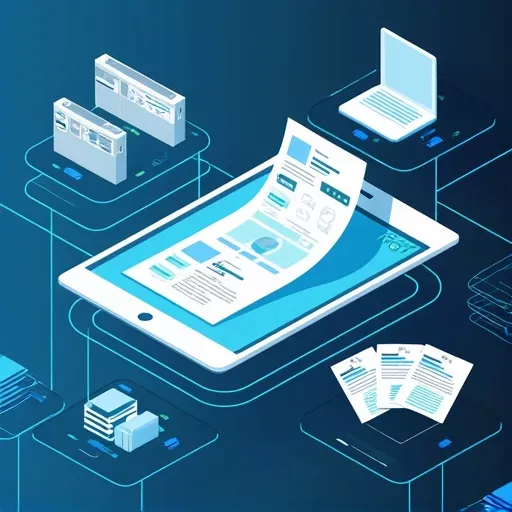Artificial intelligence (AI) is no longer just the domain of tech giants and sci-fi movies. In 2025, small business AI adoption in Australia is booming, with more local businesses than ever before using AI to boost efficiency, cut costs, and deliver better customer experiences. But while the opportunities are huge, the journey isn’t always straightforward. From skills gaps and funding hurdles to data privacy and ethical concerns, Aussie SMEs are navigating a rapidly changing landscape.

This article dives deep into the current state of AI adoption among Australian small businesses, exploring the latest trends, real-world examples, challenges, and practical tips for making AI work for you. Whether you’re a café owner, a tradie, or running a creative agency, you’ll find friendly, expert advice to help you get ahead in the age of AI.
The State of AI Adoption Among Australian Small Businesses
How Many SMEs Are Using AI?
Recent research shows that 35% of Australian SMEs have already adopted AI, with another 60% planning to integrate it by 2026 (Small Business Connections). This puts Australia at the forefront of global AI adoption for small businesses, especially in sectors like health, education, and manufacturing, where adoption rates are as high as 45%. However, industries like agriculture are lagging behind, with just 6% adoption.
There’s also a clear divide between metro and regional businesses. SMEs in cities are more likely to use AI, while regional businesses often face barriers like limited access to expertise and fewer local solution providers.
What Are Small Businesses Using AI For?
The most popular AI applications for small businesses include:
- Customer service chatbots and virtual assistants
- Marketing automation and personalised campaigns
- Predictive analytics for sales forecasting
- Automated document processing and data entry
- Fraud detection and cybersecurity
- Content creation (social media, blogs, emails) using generative AI tools like ChatGPT and Copilot
These tools are helping businesses save time, reduce costs, and make smarter decisions—often with a surprisingly quick return on investment.
Why Are Aussie SMEs Embracing AI?
Levelling the Playing Field
AI is often called the “great equaliser” for small business. It allows SMEs to automate repetitive tasks, analyse data like the big players, and deliver personalised experiences that were once out of reach. For example, AI-powered accounting software can process invoices and generate reports in minutes, while marketing tools can target the right customers at the right time with minimal effort.

Boosting Efficiency and Cutting Costs
AI is a game-changer for productivity. Automated customer service bots mean you don’t need a huge support team, and AI-driven inventory management can help you avoid overstocking or running out of popular items. Many businesses report a positive ROI within the first year of implementing AI solutions (Local Digital).
Enhancing Customer Experience
Today’s customers expect fast, personalised service. AI helps small businesses deliver, whether it’s through chatbots that answer questions 24/7, or recommendation engines that suggest the perfect product. In fact, 88% of Australian SMEs using AI say they’ve seen revenue growth as a result.
Real-World Examples: Aussie SMEs Leading the Way
- Ivo: An AI-powered contract review tool developed by a Sydney start-up, now used by big names like Canva to speed up legal processes.
- BindiMaps: Uses AI to provide indoor navigation for the visually impaired, partnering with Australia Post to make public spaces more accessible.
- Harrison.ai: Specialises in healthcare AI, improving diagnostics and patient outcomes, and attracting major investment from the National Reconstruction Fund.
These examples show that AI isn’t just for tech companies—any business can benefit with the right approach.
The Challenges: What’s Holding Small Businesses Back?
Skills Gaps and Awareness
Despite the buzz, 23% of SMEs are still unaware of how AI could help their business (Fifth Quadrant). Many owners worry about the technical know-how required, or simply don’t know where to start. Upskilling and education are crucial, and there’s a growing push for more accessible training and support.

Funding and Cost Concerns
While AI is becoming more affordable, the initial investment can still be daunting for smaller businesses. Funding constraints are a major barrier, especially for those outside major cities. Government grants and support programs are helping, but more targeted assistance is needed.
Data Privacy and Security
With great power comes great responsibility. Many SMEs are concerned about data privacy, especially when using cloud-based AI tools. The Australian government is ramping up regulation, urging businesses to adopt ethical AI practices and protect customer data (UTS HTI).
Quality and Oversight
AI isn’t perfect. Business owners report issues with the accuracy and quality of AI-generated content, and stress the need for human oversight. It’s important to review outputs and have clear processes in place to catch errors before they reach customers.
Overcoming the Barriers: Practical Tips for Small Business AI Adoption
1. Start Small and Scale Up
You don’t need to overhaul your entire business overnight. Begin with a single, well-defined use case—like automating customer enquiries or streamlining your invoicing process. Measure the results, learn from the experience, and expand as you gain confidence.
2. Upskill Your Team
Invest in training for yourself and your staff. Many online courses and government-backed programs are now available, designed specifically for small businesses. Building a basic understanding of AI will help you make informed decisions and get the most from your investment.
3. Choose the Right Tools
Look for AI solutions that are user-friendly and tailored to SMEs. Many software providers now offer affordable, scalable options with local support. Don’t be afraid to ask for demos or trial periods before committing.
4. Prioritise Data Security
Make sure any AI tool you use complies with Australian privacy laws and best practices. Keep customer data safe, and be transparent about how you use AI in your business.
5. Seek Support and Community
You’re not alone! Join local business networks, attend workshops, and tap into resources from organisations like the National AI Centre and AI Adopt Centres. Sharing experiences with other business owners can help you avoid common pitfalls and discover new opportunities.
The Future: What’s Next for Small Business AI in Australia?

AI adoption among Australian SMEs is set to accelerate, with the market projected to grow at nearly 29% per year and reach over $20 billion by 2030. As tools become more accessible and affordable, and as more businesses see the benefits, expect to see AI become a standard part of running a small business.
But it’s not just about technology. The real winners will be those who combine AI with a human touch—using smart tools to free up time for creativity, relationship-building, and innovation.
Conclusion
Small business AI adoption in Australia is transforming the way we work, compete, and grow. While there are challenges to overcome, the benefits are too big to ignore. By starting small, upskilling your team, and focusing on responsible, customer-centric use of AI, you can future-proof your business and thrive in the digital age.
So, whether you’re just dipping your toes in or ready to dive headfirst, now’s the time to embrace AI and make it work for you. The future of Aussie small business is smart, agile, and powered by AI—with a distinctly human touch.


